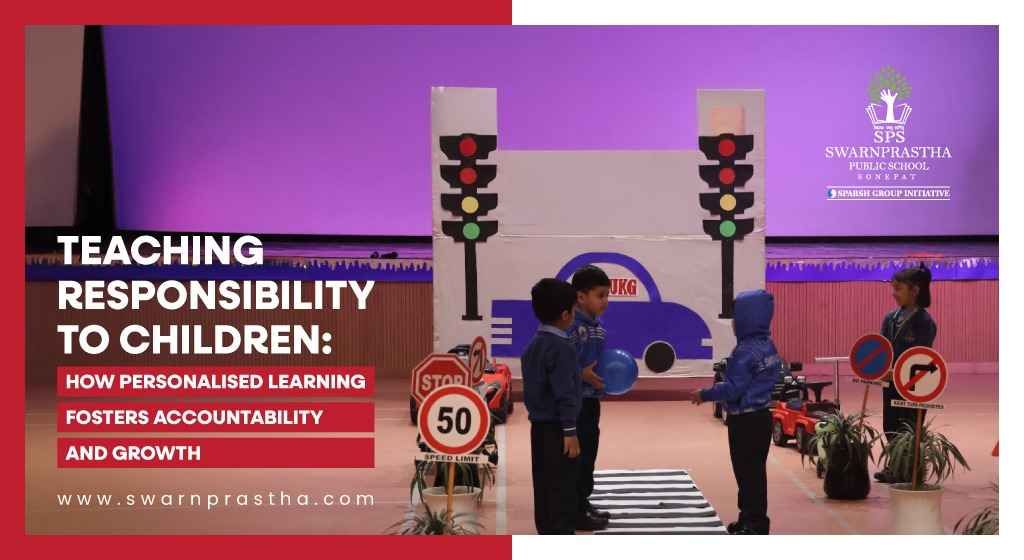Educational institutions across the modern landscape of education place academic success as the core focus, but equally recognise the need to teach students life skills that encompass accountability, self-discipline and independence. Personalised learning employs specific teaching approaches that cater to individual student needs to foster responsible behaviour. Personalised learning programmes, properly implemented, lead to better academic results because they develop responsible and accountable students.

Understanding Personalised Learning
A personalised learning method emerges through the abolition of common teaching standards. The learning programme designs special areas which align with students' individual learning requirements and educational needs. Customised lessons come with adjustable timescales, various levels of tasks, different resources and various learning approaches. By giving students a voice in how and what they learn, personalised learning empowers them to take charge of their educational journey. This empowerment is where responsibility begins to take root. When children are involved in setting their learning goals and tracking their progress, they become more accountable for the outcomes.
Building Accountability Through Ownership
The core factor of personalised learning rests in student ownership. This develops an intrinsic motivation for learning and students take onus for their own choice of courses and ways of studying. The act of regularly reviewing personal learning plans helps children understand the impact of their efforts, reinforcing the connection between responsibility and results.
Encouraging Growth Through Reflection
Reflection is another critical element in fostering responsibility. Personalised learning often encourages students to think critically about their learning journey. Reflection empowers students to evaluate their strengths and weaknesses and devise ways for improvement. This results in a growth mindset, crucial for personal growth and sustained success.
Supporting Independence and Self-Discipline
Successful personalised learning requires students to work with small peer groups and self-manage their time, while finding relevant resources on their own. Self-discipline alongside independence develops through such experiences. The learning process becomes self-propelled because students move away from passive content consumption and learn essential skills including deadline management, balancing multiple tasks and decision-making.
Digital learning systems with adaptive features enable students to learn at their own pace. Under this system, students have more control on their results, while developing greater belief in their personal abilities. Through their educational experience students learn essential life skills which include deadline management and multiple tasking alongside decision-making practice for adult readiness.
The Role of Parents and the School Community
The most effective approach to teaching responsibility through personalised learning methods requires teachers to collaborate with parents and the school community. Parents play a crucial role by helping children identify their daily challenges and teaching them to set goals, as well as developing organisational habits. The establishment of trust, along with open communication channels and shared accountability, helps schools adopt a stronger approach towards making children more responsible.
Schools need to establish safety zones that teach students how errors aid their educational development. Children take personal responsibility for their actions because they feel supported by understanding adults who will not punish them for minor failures.
Conclusion
The development of responsible traits requires specific efforts over an extended period of time, as children do not automatically acquire these characteristics overnight. Personalised learning serves as an effective framework that promotes responsible growth by nurturing student-driven learning, along with experience analysis, to achieve independent educational progress. The process of taking charge of their education enables students to become mature adults who can effectively handle future difficulties.
The learning framework at Swarnprastha Public School fosters responsible and independent learners in young students through personalised instruction. The academic framework at Swarnprastha Public School incorporates this method to enable students to achieve academic success while becoming self-reliant and community-serving members.
FAQ
1. What role do teachers and parents play in teaching responsibility through personalised learning?
Teachers act as facilitators and mentors, guiding students to set realistic goals and reflect on their progress, while parents can support this process at home by reinforcing routines and encouraging independence. Together, they create a supportive environment where children feel empowered to take charge of their learning and grow into responsible individuals.


